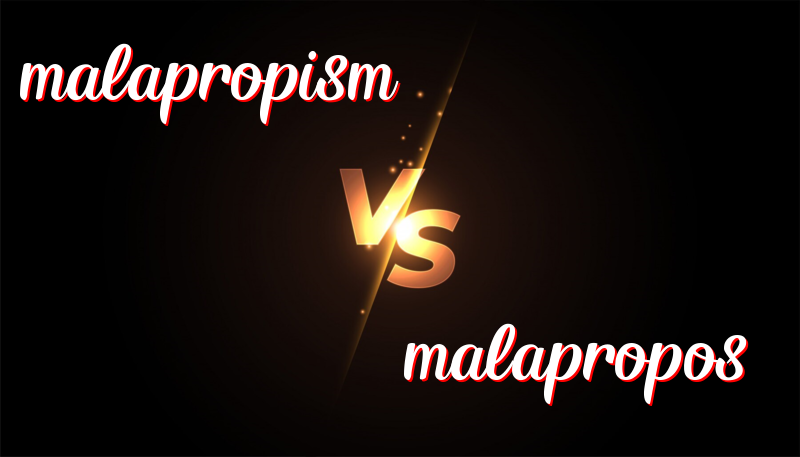Understanding Malapropism and Malapropos: Differences and Examples
Understanding the Difference: Malapropism vs Malapropos
Words can sometimes be tricky, and “malapropism” and “malapropos” are two words that might be confusing. Let’s learn about each word, their history, how to use them, and a trick to remember the difference.
What is a Malapropism?
“Malapropism” is when someone uses a wrong word that sounds like the word they wanted to say, but it makes the sentence funny or silly. This word comes from a character named Mrs. Malaprop in a play by Richard Brinsley Sheridan called The Rivals from 1775. Mrs. Malaprop often confused words in a funny way.
How to Use Malapropism
- “He’s the pineapple of politeness!” (should be pinnacle)
- “Flying saucers are just an optical conclusion.” (should be illusion)
- “That’s a tantrum bicycle you’re riding.” (should be tandem)
- “She’s as headstrong as an allegory on the banks of the Nile.” (should be alligator)
- “His capacity for hard liquor is incredulous.” (should be incredible)
Trick to Remember Malapropism
Think of “mal” as “bad” and “prop” as “proper.” So, a malapropism is a “bad proper” use of words.
What is Malapropos?
“Malapropos” means something is not proper, suitable, or appropriate for the situation. It comes from the French phrase “mal à propos,” which means “badly placed.” It is used when things happen at the wrong time or place.
How to Use Malapropos
- He made a malapropos joke at the serious meeting.
- The loud music was malapropos during the quiet dinner.
- Wearing shorts to the wedding was quite malapropos.
- The comment was malapropos and hurtful during the discussion.
- It was malapropos for him to interrupt with unrelated questions.
Trick to Remember Malapropos
Think of “mal” as “bad” and “apropos” as “appropriate.” So, malapropos means “badly appropriate” or not suitable.
Summary
In short, malapropism is when words are mixed up for funny effect because they sound similar but mean different things, while malapropos refers to actions or words that are not suitable or proper for a situation. Remember, “malapropism” is more about word mix-ups, and “malapropos” is about things not being suitable for the time or place.

Leave a Reply
You must be logged in to post a comment.